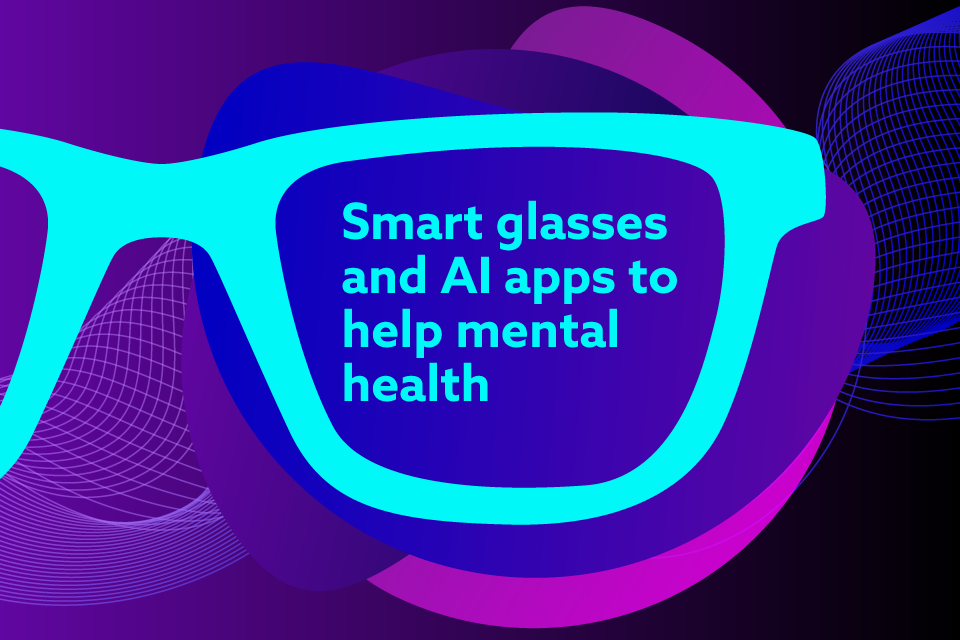Cutting-edge Extended Reality for Real-time Mental Health Support Across the UK
On a grey afternoon in London, a young woman named Sarah sits quietly in her living room, eyes glazed as she contemplates the mundane tasks that loom before her. For Sarah, who has battled severe depression for years, even the simplest of chores can feel insurmountable. It’s in moments like these that a glimmer of hope emerges from the fog of her condition—a pair of smart glasses designed to assist her in daily activities. Brought to life by an innovative project backed by £3.6 million in funding from Innovate UK, these advanced devices are part of a broader push to harness technology in support of mental health.
The Call for Help: A Surge in Mental Health Needs
The demand for mental health support in the UK has skyrocketed since the onset of the pandemic, with NHS England reporting a staggering 40% increase in individuals seeking help. As mental health conditions penetrate deeper into society, government initiatives are stepping up to confront this growing crisis with technology. Science Minister Lord Vallance recently unveiled 17 innovative projects utilizing extended reality (XR) technologies, aiming to provide real-time mental health support to those across the UK, especially in underserved areas.
Experts have long warned of the consequences of underfunded mental health services. A recent study by the Institute for Mental Health found that nearly 50% of adults in the UK experience mental health issues at some point in their lives. “Investing in technology for mental health treatment is not merely an enhancement; it’s a necessity,” asserts Dr. Emily Hart, a clinical psychologist affiliated with the Royal College of Psychiatrists.
Innovative Approaches
- Smart Glasses: Developed by CrossSense, these lightweight devices recognize household objects and offer cognitive support. They can remind the wearer to stay away from potential dangers, like boiling water on the stove.
- AI Filter Apps: Designed to reduce the anxiety that often accompanies therapy, these applications personalize therapeutic experiences by providing engaging, interactive tools for users.
- Collaborative Projects: Initiatives like Play Well for Life, partnering with the University of the West of England, focus on children’s mental health through augmented reality board games.
These projects underscore a radical shift in how we approach mental health care. Smart glasses, for instance, are not just a futuristic gimmick; they represent a new paradigm in assisting those with severe depression and cognitive impairments. By adapting to individual user needs, these glasses help users break through the barriers that mental health conditions create, enabling daily tasks that might otherwise feel overwhelming.
Baroness Merron, Minister for Mental Health, remarked, “New tools, such as smart glasses and AI filter apps, reflect our commitment to revolutionizing healthcare by placing the patient at the center of innovation.”
Real-World Impact: From Thoughts to Action
What does this mean for individuals like Sarah? The smart glasses developed by CrossSense show promise not just in aiding daily activities; they actively work to retrain the brain to recognize positive stimuli and step past negative thought patterns. “Our technology offers a hands-on approach to cognitive therapy, providing real-time feedback,” explains Dr. Jonathan Lee, a neuroscientist involved in the project. “By merging AI and UX design, we’re not just treating symptoms; we’re addressing root causes.”
The support extends to various conditions, encompassing everything from anxiety and depression to post-traumatic stress disorder (PTSD) and addiction recovery. For adults battling generalized anxiety, EcoGPX in West Yorkshire is employing XR technology to create immersive experiences that connect users to nature, promoting a sense of calm and stability.
A Weaving Tapestry of Innovation
Other notable projects funded by Innovate UK include a world-first app from Photography Based Therapeutics, which utilizes AR to help young people create therapeutic visual content. This app allows users to edit distressing photographs, adding calming elements while removing negative ones. “It’s a digital diary—an innovative medium for expression that transcends words,” shares Dr. Lydia Thompson, who leads the app’s development.
As these technologies evolve, they promise to reshape not only individual experiences but also the healthcare landscape at large. This fusion of digital innovation and mental health support is part of a newly launched 10-Year Health Plan aimed at bolstering the mental health workforce and ensuring access to care. The goal is to alleviate the strain on NHS services, currently stretched thin by rising demand.
A Vision for the Future
At the core of this initiative is a clear acknowledgment that mental health technology is not simply a supplementary resource but an integral part of healthcare. With plans to recruit an additional 8,500 mental health workers and provide better access through platforms like the NHS App, the government’s strategy is marked by urgency and ambition.
As the landscape of mental health support continues to transform, the intersection of technology and healthcare holds the potential for profound change—an opportunity to dismantle the obstacles people like Sarah face in their everyday lives. The smart glasses that empower her to navigate her tasks serve as a beacon of hope for many across the UK, illustrating that even the darkest moments can be illuminated with the right tools.
In a society increasingly shaped by technology, it seems that the future of mental health care lies not just in innovation but in empathy. By fostering connections through advanced technology, we can ensure that the road to recovery is navigable, even for those entangled in the web of severe mental illness.
Source: www.gov.uk


